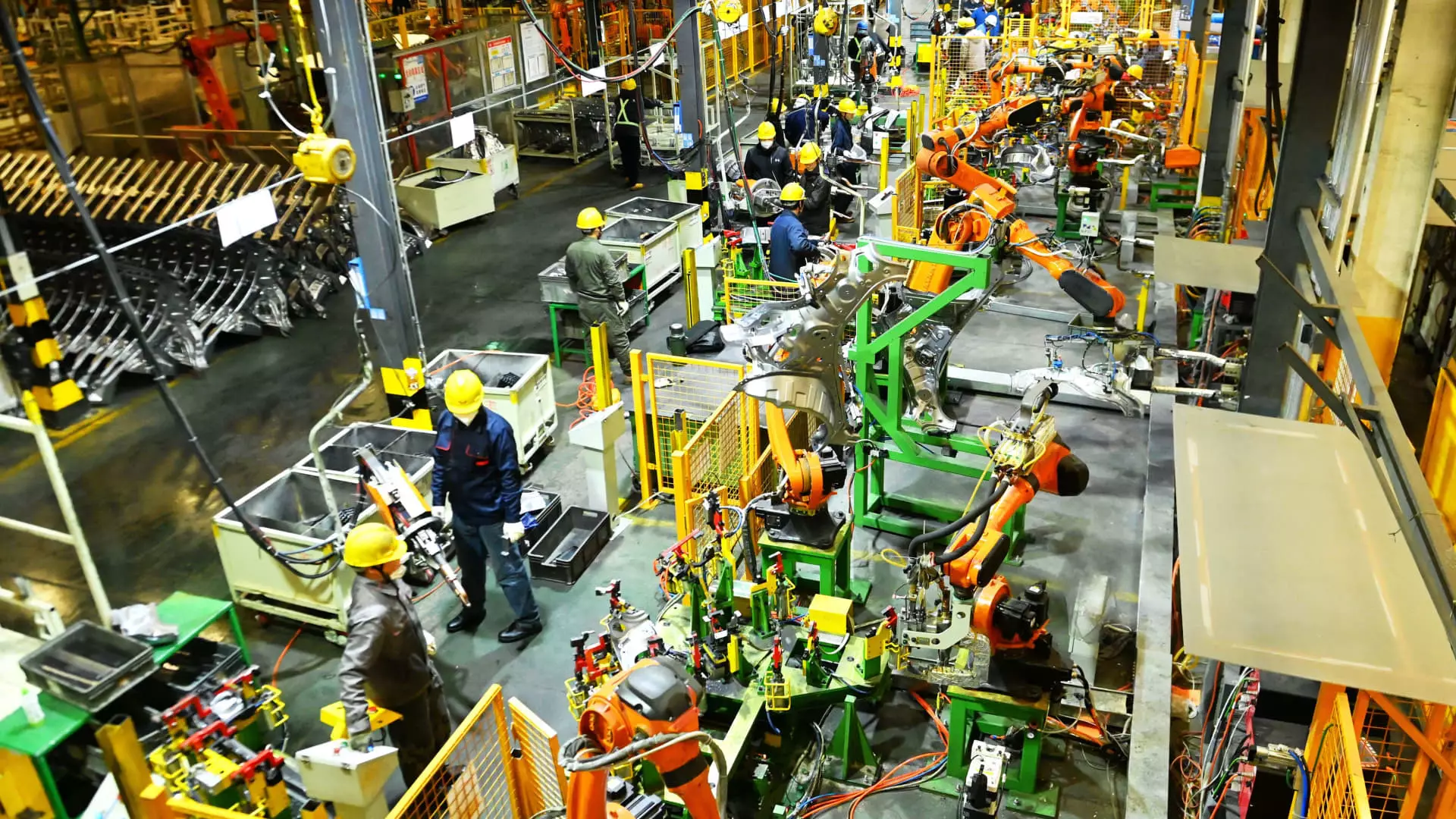President Donald Trump’s approach to tariffs has created waves across the automotive landscape, a sector that stands as the backbone of American manufacturing. Recently, reports surfaced suggesting that he is contemplating exemptions for automakers on tariffs that could have significant financial implications. Tariffs aimed at curbing imports from China are seemingly being revisited, with a focus on auto parts that have direct repercussions on manufacturers here in the U.S. While the White House moves forward with potential exemptions, one cannot help but question the long-term ramifications of such a policy shift.
The automotive industry is already reeling under the weight of existing tariffs, which represent not just economic burdens, but also a political gamble. Companies have been crying out for relief, and yet they face an administration that has oscillated between strict enforcement and selective leniency. Trump’s tariffs were initiated with a clear intention—to protect American jobs and reduce dependency on foreign production—but the reality is becoming increasingly complicated, and the consequences may have been underestimated.
The Ghost of China
One of the main justifications for imposing these tariffs was the battle against fentanyl production, reportedly sourced from China. However, marrying trade policy with such a complex social issue seems short-sighted. Opening exemptions for auto parts while keeping a hardline stance against China suggests a lack of coherence in strategy that might not resonate well with either manufacturers or the public. While it’s understandable that retaliatory measures against nations stealing intellectual property are vital, this blurring of lines indicates potential overreach.
Moreover, Trump’s insistence on an isolationist trade strategy encroaches on free-market principles. While many might agree that America’s manufacturing base should be prioritized, it is imperative to realize that such measures could hinder our innovation and competitiveness in a global market. The global supply chain has matured beyond the simple idea of ‘America first’; it requires collaboration and adaptability to thrive. Imposing tariffs as a unilateral measure may ultimately isolate the very workforce Trump claims to support.
A Unified Outcry from Industry Leaders
Interestingly, various stakeholders from the automotive sector have united in their opposition to these impending auto parts tariffs, an unusual yet revealing occurrence. Six prominent industry groups joined forces to lobby against the impending costs, demonstrating a unified front against what they perceive as detrimental policies. In their letter to the Trump administration, they expressed poignant concerns that rising costs will not only affect manufacturers but also exacerbate pressures on suppliers already clinging to sustainability.
Companies like General Motors are caught at a pivotal juncture. CEO Mary Barra underscored the need for clarity and consistency in policy, revealing a sentiment that has been echoed throughout the industry. The urgency to define trade regulations cannot be overstated; inconsistent policies make it nearly impossible for companies to plan effectively. Decision-making becomes reactive instead of strategic, driving a wedge between current capabilities and future aspirations.
Economic Ramifications on the Horizon
The potential chaos of unrolling tariffs can lead to disastrous economic consequences. Price hikes on imported vehicles and auto parts would not only inflate consumer costs but may also deter foreign investment in U.S. manufacturing. A downward spiral could ensue where prices swell, jobs dwindle, and consumer trust erodes. The question looms: who truly benefits from a policy rooted in protectionism?
At a time when the U.S. economy needs stability, uncertainty fostered by tariffs threatens to derail progress. Politically charged tariffs may provide short-term media victories, but they create long-term headaches. As automakers and stakeholders strive for clarity, the risk of significant backlash from consumers becomes real and palpable. How can we expect a thriving market if prices continue to climb, squeezing out the average American buyer?
The need for a balanced approach that promotes both fair competition and economic growth has never been clearer. It’s time for the Trump administration to pivot away from tariff-driven tactics that could alienate the very economy they aim to bolster. Instead, fostering a cooperative international trade atmosphere could yield better prospects for the automotive industry while honoring the ethos of American ingenuity.

